Gen Z – The Future of Our Workforce

Just when you thought you’d mastered Millennials comes the news that Gen Z is about to enter the workforce. Loosely defined as those born after 1996, many are still what we would think of as “kids”, “tweens”, “adolescents” or “teenagers”. The oldest of this generation are around 23 years of age, have just completed formal education, and are entering the workforce. Gen Z employees are starting to invade offices, and we need to take note of them. They are our future.
Workplace culture affects both a firm’s productivity and ability to effectively retain employees. Over the past decades, large amounts of effort and billions of dollars have been invested in integrating millennials into the workplace. As the new generation is about to enter the workforce, the biggest mistake one can make is to just group Gen Z with millennials and label them as “young workers”. They embrace different values from those before them.
Gen Z and Millennials have many distinct characteristics. Gen Z have been mostly brought up by Gen X parents, while Millennials have typically had Baby Boomer parents. According to Ryan Jenkins, an expert on Millennial and Gen X research, Baby Boomer parents focused on self-esteem and brought up their children with an “everyone gets a trophy” approach, constantly reminding them that they can achieve anything. In contrast, Gen X parents, having seen the effects of mollycoddling children, ended up becoming more of a coach than a friend, letting them know that they must be prepared to work hard, even if it meant encountering failure. Additionally, both Gen Z and Millennials grew up in different financial environments. Millennials grew up in relative economic tranquility, whilst Gen Z’s formative years were the aftermath of the Global Financial Crisis of 2007.
These factors bring us to another key difference between Gen Z and Millennials. While Millennials tended to be idealists, Gen Z are realists. In addition to experiencing the recession, witnessing how Millennials struggle to find jobs or pay off their student loans has led to Gen Z prioritizing stability and security in their jobs and finances.
According to the Advisory, Conciliation and Arbitration Service Conciliation (ACAS), 7 in 10 leaders are concerned about how Gen Z workers will fit in the workplace. Gen Z workers bring a totally different set of dynamics and expectations to the workplace, and firm simply cannot overlook this if they want to remain competitive in today’s technological and global landscape.
So what are Gen Z employees looking for in the workplace?
1) What they want at work: They want to receive constant feedback, and to explore entrepreneurship.
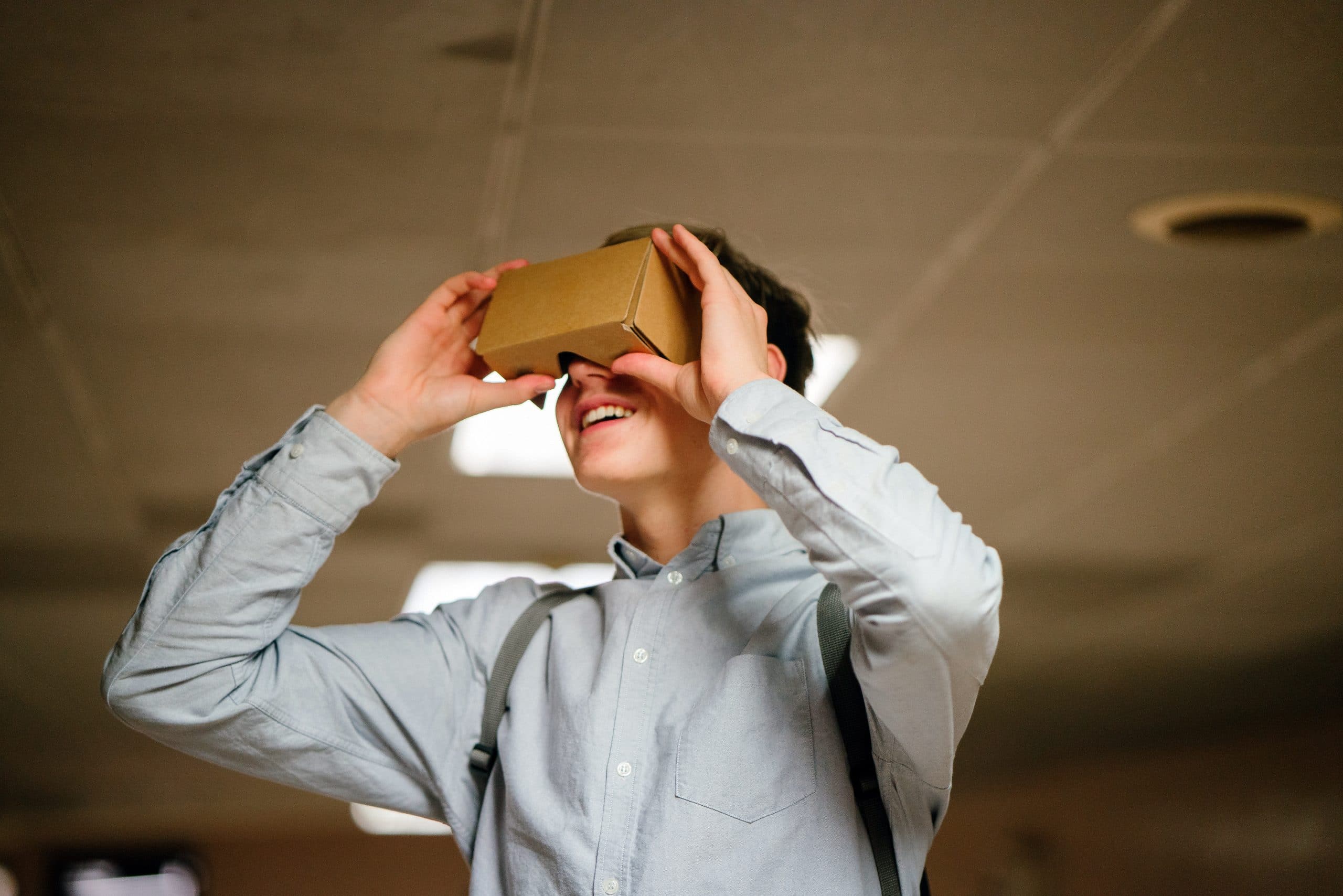
Feedback
Gen Z are used to constant and immediate feedback. In an ACAS survey, 20% of Gen Z respondents were put off by leaders that gave little face-to-face contact, and around 33% disliked managers that gave little praise and recognition. Surrounded by countless screens and mountains of information as they grew up, Gen Z have become accustomed to real-time updates, be it social media updates or new updates, they have developed the need for instant gratification via immediate feedback.
Gen Z employees want to be friends with their bosses. The fine line between employer and employee is about to be erased. Gen Z wants to be socially connected with the people around them, including their employers. They may even feel unvalued in the absence of constant feedback or recognition from their bosses. A study by CNBC found that only 3% of Gen Z favoured annual performance reviews. The Z Generation just can’t wait an entire year for feedback. Times have changed. Companies all over the world, such as GE and Adobe, have started to move from annual performance reviews to regular feedback programs.
In fact, research by the Center for Generational Kinetics (CGK) has shown that 2 in 3 of Gen Z say they require feedback at least every few weeks in order to stay at their job. For Gen Z employees specifically, there should be a focus on frequent feedback, rather than an annual performance review.
Entrepreneurial
Gen Z are entrepreneurial. They want to and have the tools to be entrepreneurial. They have the luxury of the internet, which can provide them the answers they are looking for, ideas they are searching for and inspiration they are craving for. They have the bliss of being able to learn anything at anytime.
According to a study done by consulting firm Sparks & Honey, 72% of high school students want to start a business and 61% of high school students want to be an entrepreneur. In addition, 85% have researched online, 33% watches lessons online and 32% have taken exams online. This aligns with David and Jonah Stillman’s (authors of the book “Gen Z @ Work: How the Next Generation Is Transforming the Workplace”) research, which showed that 75% of Gen Z believe that there are more ways to learn than going to college.
What we call “moonlighting”, Gen Z call it the “side hustle”. Engulfed by their unlimited information and leveraging on the connectivity and availability of online platforms, it is very easy for them to work on other projects other than their jobs, be it starting a business or even freelancing.
In terms of work, employers should find ways to leverage the entrepreneurial spirit of Gen Z, by giving them work that has creative elements or open-ended possibilities, and thereby benefit from their resourcefulness while keeping them engaged.
2) When and where do they want to work: They are looking for flexibility.
With Gen Z employees, we should focus more on their work output and quality, rather than the hours they spend in the office.
Gallup’s “State of the American Workplace” survey has shown that more than 1 in 3 respondents would change their jobs for a chance to work remotely some of the time, especially for young employees. A separate study by CNBC revealed that flexibility has displaced health care coverage as a top employee benefit for Gen Z employees.
They grew up with the freedom to connect with anyone or search for any information at whatever time they want. Want to hear a song? Just turn on the iPod. Want to catch up with a friend overseas? Just set up a Skype meeting. What to know something? Just google. Hence, it comes as no surprise that they hope to have the same freedom in their working lives, and more and more companies are starting to provide it.
According to the Center for the Future of Work, 70% of Gen Z expect their working hours to exceed the traditional 40 hour working week. However, because of the hyper-connected and on-demand environment that they grew up in, they don’t see the need for work to be confined within the traditional 8 – 5 structure. Instead, they accept that there might be a need to work outside office hours.
Effective remote working requires self-discipline, but this is something Gen Z employees seem to have. Having grown up in economic uncertainty, most of the Z Generation are motivated to work hard in order to achieve financial independence and stability. It may work in your favour to even allow them to work remotely on certain days as it could even be more productive. To them, work done at 7pm at home and work done at 8am at the office is still work done.
3) Why they work: They do it for the purpose (or sometimes, for the money.)

Branding and cause
Gen Z are clear on what they want to achieve in their career, and can be motivated and hard workers who aim to stay at a company for the long-term, provided that it is a fit for them. Gen Z have different wants and needs, and in order to improve retention of Gen Z talents, you will need to create a company culture that fits them , and ensure that their priorities are being taken care of.
Gen Z is looking to do meaningful and purposeful work. They want to do something that makes a difference, and be part of a social cause. A case study by Staffbase showed that 84% of Gen Z workers want to do purposeful work for a company that they believe in. Moreover, a Sparks & Honey study revealed that 26% of 16 to 19 year olds are currently volunteering, and are very keen to “make a difference” and “make an impact”. Therefore, being able to put your firm in a good light by being part of social causes would make you more appealing to Gen Z workers. Providing them with opportunities to volunteer might be a plus point too.
At the same time, we should be aware that Gen Z may view corporate social responsibility (CSR) as an “evil” marketing scheme for tax reduction purposes. To these Gen Z employees, the company culture should align with the cause that they have chosen. They need leaders that show their continual commitment towards the cause. A good example would be Marc Benioff, CEO for Salesforce, who started a 1-1-1 philanthropy model, where 1% of their products, equity and employees’ time is given to the community. He is also a highly vocal advocate for various social issues. He is a good illustration of how leaders show that they are committed to meaningful and purposeful work. This enables employees to feel that their contributions are authentic, and allows them to feel the sense of purpose they desire.
Money
There are conflicting signals about Gen Z’s relationship with money.
Some studies suggest that monetary benefits are not a powerful motivation for them. A study by Universum on why Gen Z chose their course of study showed that 67% chose based on interest while 39% chose based on potential compensation. A study by Millennial Branding and Randstad also showed that only 28% of Gen Z said money would motivate them to work harder and stay longer with their employer. According to Gallup’s “State of the American Workplace” survey, Gen Z prefer opportunities for advancement rather than high salaries.
However, despite their mindset of constant learning and self-improvement, Gen Z grew up in a climate where wages for young people have been stagnant since 2000, and where the price of healthcare and higher education have been constantly increasing. According to a Randstad study, 46% of Gen Z says that student debt is their greatest concern. The Center for Generational Kinetics has also stated that Gen Z is “a generation that’s thinking about their own financial future.”
Therefore, despite the fact that they want to work for a purpose or cause, the fact that Gen Z employees are realistic means that financial compensation can be a big pull if their financial situation calls for it.
4) How they want to work: Gen Z is Tech Innate. However, at the same time, they want collaboration.

Tech Innate
From the time Gen Z were born, they have been surrounded by technology. They have never known a world without the internet. With the convenience of the internet, they live in a time of connectivity, and are able to talk to anyone at almost anytime, anywhere. They multitask across 5 screens on average and consume information at an astonishing pace. Their primary mode of communication has evolved to Instagram and Snapchat, where they utilise pictures or videos to convey their messages. This has resulted in a short attention span of 8 seconds, a startling statistic shared at SXSW 2016 by Anna Fieler, Executive Vice President of Marketing at POPSUGAR. With unlimited access to information, they have mastered the art of filtering information in a very short span of time. Some good news: A common trend observed by HR firms is that the Gen Z is very savvy with technology, can pick things quickly, and can make an immediate impact for their companies.
So how do we keep them engaged in the workplace? What we can do is provide training. Gen Z workers crave improvement and aspire for self-actualisation. They have goals they strive towards, and their attitude towards work is more of a “what can you do to help me achieve my goal” mindset. Other than work-related training, it may also be beneficial to provide training for skills such as handling calls and writing emails, which Gen Z may lack due to their reliance on technology.
Employers will need to use technology to engage Gen Z. A study by CNBC and Randstad showed that 43% of Gen Z wants their employer to incorporate social media into their workplace. Coupled with their average usage of 5 screens at once, it is recommended that both training and communication be done through multiple channels as Gen Z likes to choose how they receive content. A Future of Work study predicts that employee apps will be the driving force for workplace communication, with 58% of technology companies planning to integrate one into how they work.
Collaboration
Although Gen Z are notorious as digital natives, they are actually also keen on face-to-face collaboration. This makes sense, given that they grew up observing how the Millennial generation were criticised for their lack of interpersonal skills. Furthermore, Gen Z has been bestowed with a different set of communication tools, such as FaceTime and Snapchat, which allow them to communicate remotely not only via voice, but with facial recognition. As a result, 82% of Gen Z prefer face-to-face communication, according to David and Jonah Stillman.
Hence, it is imperative to provide them with opportunities to collaborate with others. Let them engage in conversations and team meetings in person, rather than have everything go. Gen Z wants to work, learn and grow together with their peers.
5) Who do they want to work with: What type of leaders inspires them
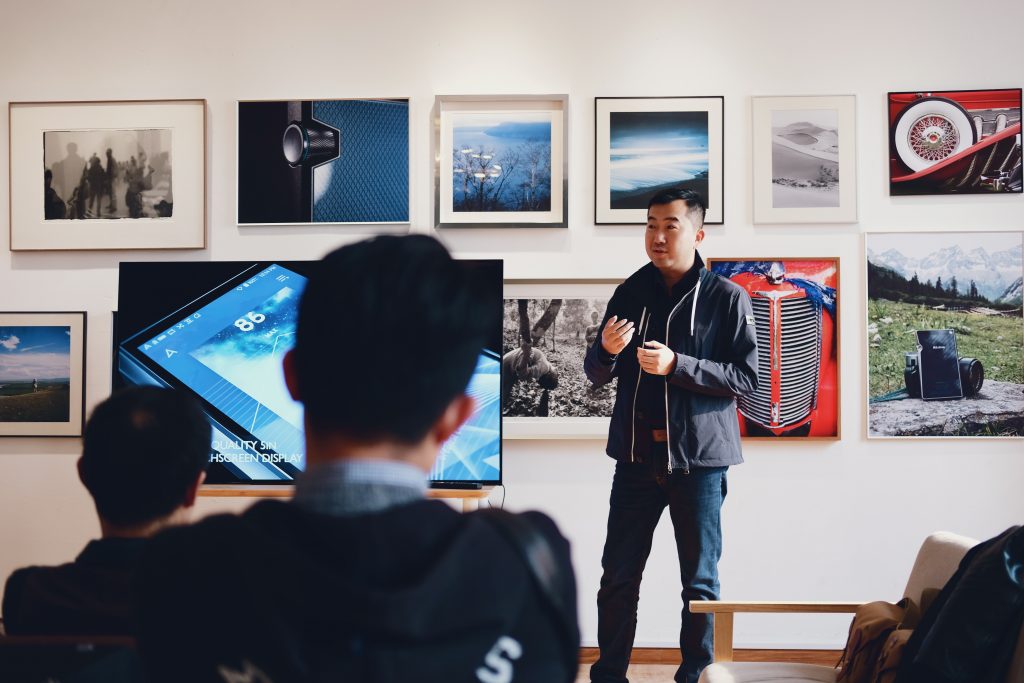
With Gen Z employees forming the bulk of entrants to the workforce, it is vital to understand what kind of workers or leaders they want to work with.
Gen Z want to have leaders who allow them to pursue their interests. They prefer to be exposed to multiple roles, which would let them learn and grow as much as possible. Their pragmatism outlines the value they place on developing multiple skill sets, as they recognise that their career paths or individual objectives may change over time. According to David and Jonah Stillman, they would absolutely love it if their job was hyper-customised, such that they experience different roles on different days. For instance, they could work with marketing on Monday, Tuesday and Wednesday; and with HR department on Thursday and Friday. This can be complicated to plan, but it might be easier in smaller firms rather than larger ones — an advantage they have when attracting Gen Z employees.
Gen Z also value employers who are entrepreneurial. As mentioned above, many from Gen Z have a side hustle. They appreciate a leader who can embrace their entrepreneurial spirit, and provides them the opportunity to exercise this trait. Leaders would be smart to tap on their resourcefulness and give them the chance to be intrapreneurs. Accord them the freedom and flexibility to be entrepreneurial, provide them with the resources and environment to do so, and offer them the leeway and encouragement to exercise their entrepreneurial instincts and minds. They might even work wonders and create something of value for your firm.
Lastly, they appreciate leaders who act as mentors and friends. Their concept of authority or formality differs from the generations before them. Unlike older generations who have a stronger deference to authority, especially in an office hierarchy, Gen Z have a totally different concept. A study by Careerminds found out that to Gen Z, the most important characteristic of a manager is how easy it is to work with him or her. They want to be treated as a friend, and they want their manager to reply their texts. They want the freedom to work on a task rather than being micromanaged and given strict orders to follow. What a leader can do to gain the trust and respect of Gen Z employees is being transparent. They can talk to them about the various challenges they used to face early in their careers, and how they overcame these obstacles. This invaluable advice enables them to draw on the lessons of those who are more experienced. Leaders should share about their lives, such as the name of their children (it need not be too personal, just share what one is comfortable with sharing), in order to let them feel that the trust is mutual, and to foster a closer bond with their mentees.
In essence, the hope to have someone who can provide the flexibility they so crave and thrive in, foster and celebrate their entrepreneurial instincts, and develop them holistically, and ultimately for them to achieve their role and realise their objective.
So, are you ready for the entry of Gen Z into your company?
Like this article?
Want to get insights on your team's culture?
Click on this button to find out how you can do that with TalentKraft’s TeamSight.


Discovering ourselves as Gen Zs
Discovering ourselves as Gen Zs, we face unique challenges in aligning our careers with our passions. TalentKraft’s internship provided invaluable experiences, helping us define problems, explore options, and evaluate career paths. Through workshops, personality profiling, and real-world projects, we gained insights into various industries and honed our problem-solving skills. This journey has been crucial in shaping our professional growth and career decisions.

Top 3 HR challenges faced by non-profits and how to tackle them
According to LinkedIn, firms with poor employer brands could be paying as much as US$7.6 million. What exactly is an employer brand and what does it entail? And how can you improve your employer brand today to appeal to top talents?

5 ways to improve your employer brand
According to LinkedIn, firms with poor employer brands could be paying as much as US$7.6 million. What exactly is an employer brand and what does it entail? And how can you improve your employer brand today to appeal to top talents?
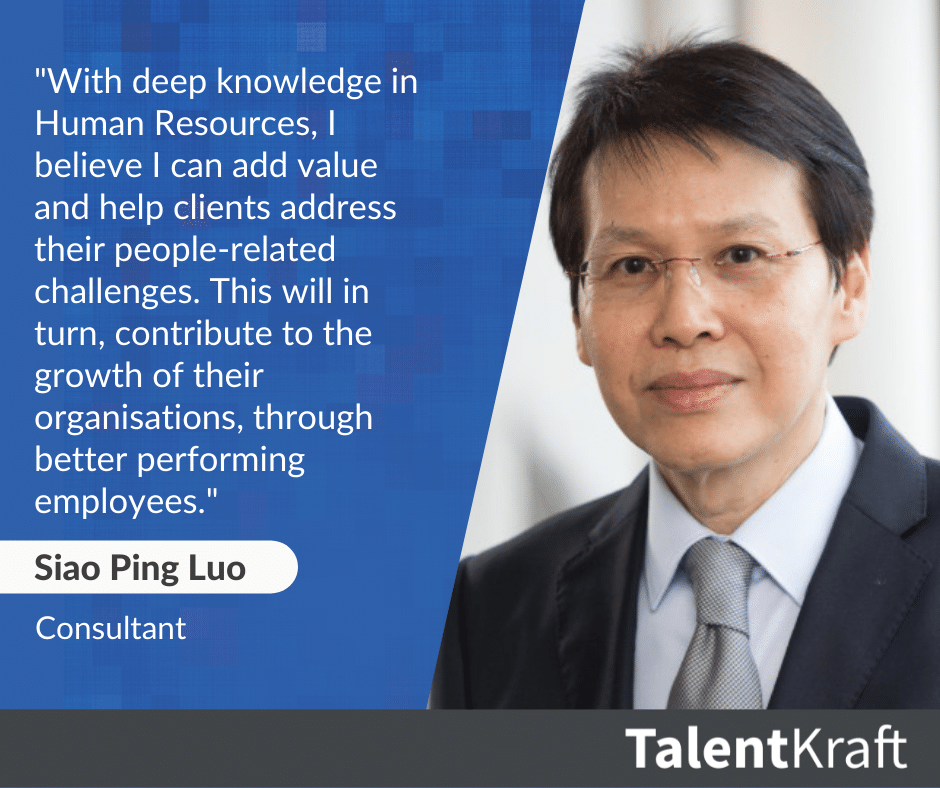
Talent spotlight: Meet Siao Ping Luo, HR expert & Consultant with growth mindset
With over 20 years of hands-on experience in the HR space, Siao Ping has become a leader in the Human Resources (HR) field and a consultant on people-related topics across diverse industries in the APAC region.
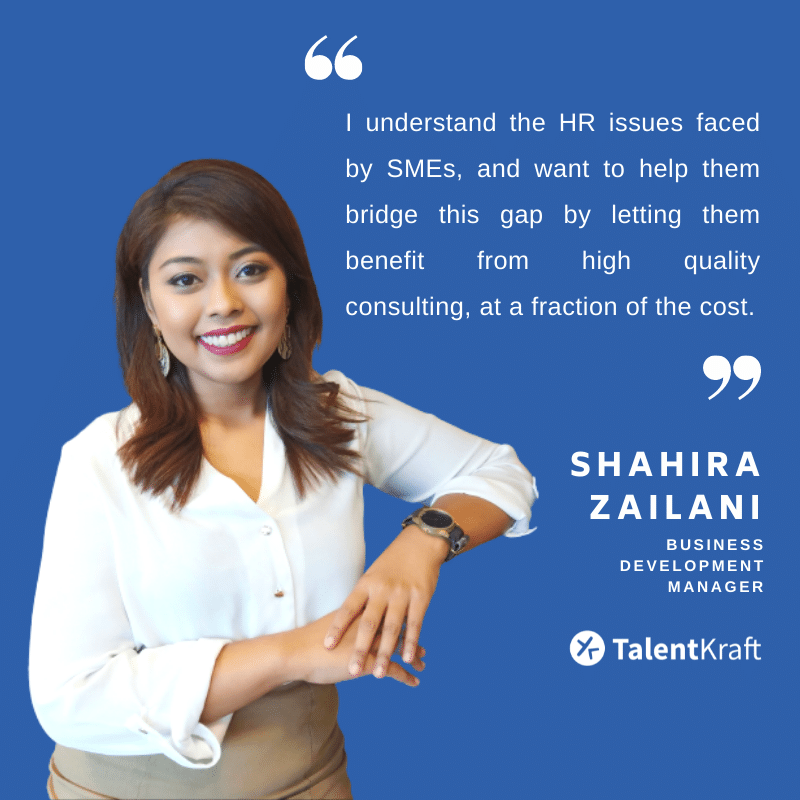
Talent spotlight: Our BD manager’s journey with HR
With 14 years of experience leading teams, our new Business Development Manager is no stranger to the intricacies and challenges of HR. Shahira Zailani shares her thoughts on helping companies build more effective teams!
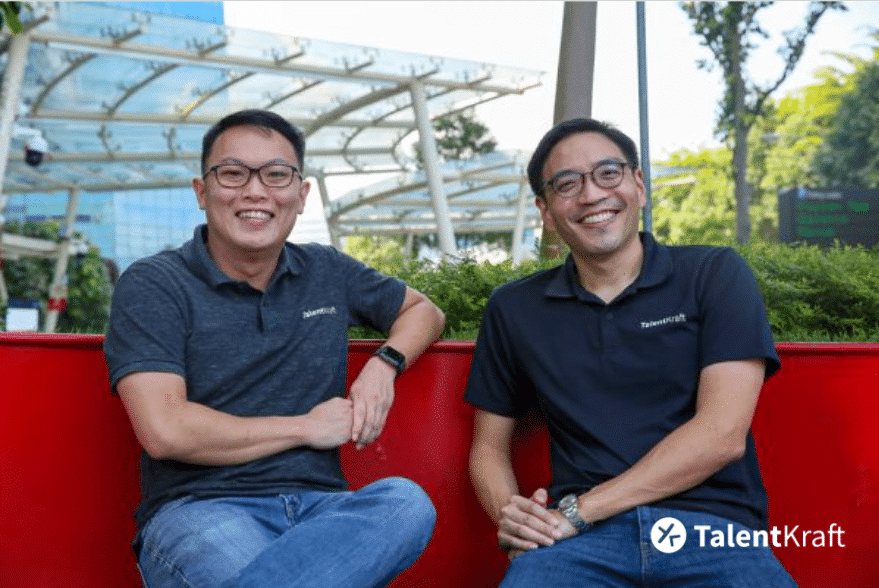
TalentKraft helps SMEs and businesses unlock value in HR – THE BUSINESS TIMES
Part of the strategy consultant’s challenge is educating SME leaders on the importance and value of HR to their wellbeing.

